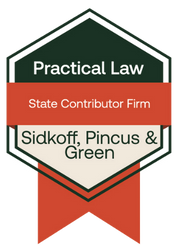Pennsylvania Supreme Court Rules Proving Dishonest Purpose or Motive is Not Necessary to Prevail on Bad Faith Insurance Claims

In a recent landmark decision, the Pennsylvania Supreme Court recognized that insurance policyholders do not need to demonstrate an insurance company’s dishonest purpose or motive to prevail on bad faith claims against their providers.
In Rancosky v. Washington National Insurance Company, No. 28 WAP 2016, 2017 WL 4296351 (Pa. 2017), the plaintiffs were husband and wife, Matthew and LeAnn Rancosky, who purchased a “cancer insurance policy” for Mrs. Rancosky as a supplement to her primary employer-based health insurance. To pay for this policy, Mrs. Rancosky’s employer automatically deducted bi-weekly payments from her paycheck. Most importantly, her policy contained a waiver-of-premium provision which excused premium payments if she became disabled due to cancer. During Mrs. Rancosky’s employment, she was diagnosed with ovarian cancer. She subsequently aimed to invoke the policy provision when she could no longer work due to disability resulting from her disease. After submitting a physician’s statement and waiver-of-premiums forms, Mrs. Rancosky believed her premiums had been waived and ceased making payments. Defendant later conducted a policy audit two years later and, upon discovery of the plaintiff’s ceased payments, deemed her policy to have lapsed. They subsequently denied her claim for further benefits. Mrs. Rancosky sought reconsideration of their decision alleging inconsistent filings and erroneous information stated by her physician.
Upon the provider’s denial of her request for reconsideration, Plaintiffs brought suit against Defendant for breach of contract and bad faith under the Pennsylvania bad faith statute, 42 Pa.C.S.§8371. To prevail on a claim under this statute in Pennsylvania, the policy holder must satisfy a two-part test, presenting clear and convincing evidence that: (1) that the insurer did not have a reasonable basis for denying benefits under the policy; and (2) that the insurer knew of or recklessly disregarded its lack of a reasonable basis. The court in Rancosky ultimately ratified this test in its verdict, and ruled that policyholders no longer need to demonstrate an insurer’s motive of self-interest or ill-will to prevail on a bad faith claim. The court stated that this requirement creates an unduly high threshold for policyholders to meet and expanded the reach of the statute to provide greater opportunity for policyholders to prevail on their claims.
For more information, call our business lawyers in Philadelphia at Sidkoff, Pincus & Green at 215-574-0600 or contact us online.



















